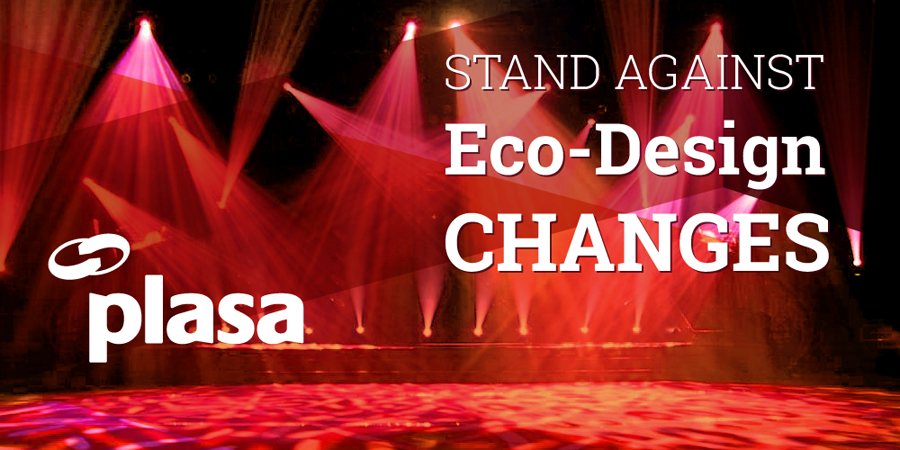UK - The EU’s proposed Eco-Design Working Plan 2016-2019 will require all stage lighting to meet efficiency targets in line with domestic and office lighting, from the very latest LED lighting fixtures to specialist tungsten bulbs which make up the majority of theatre lighting rigs. At present, there are three sets of lighting regulations for lighting products, but the proposed changes would streamline them into one regulation with no exceptions, taking effect from 2020.
PLASA placed a response with the EU Commission on 26 January; the deadline for response has now been extended to 7 May. “We urge key manufacturers in the industry to join forces with us to present a strong argument against the new proposals. This campaign is too large for one company or association to tackle alone, and time is running out,” the association says.
“These changes will affect all types of manufacturers, even those who solely produce LED lighting. The enforced change may see lighting suppliers lowering the prices of their LED products and paying less attention to product quality and energy efficiency as they would struggle to compete against international suppliers on price. Also, as LEDs, on average, have longer lifetimes than the lamps they replace, there will be less need for users to buy replacement lamps, meaning that sales will decrease.”
The industry is expected to respond to the drop-in sales by offering new light sources such as ‘smart lamps’, ‘human-centric lighting’, light for data-transmission and lighting controls and sensors. These new features may be useful, but will consume additional electricity. Of particular concern is the potential for future LED light sources to consume more electricity than current tungsten sources due to long hours in necessary standby, despite being within the scope of the proposed regulation.
Furthermore, the sale of energy efficient LED technology is steadily on the rise and is projected to make 81% of all lighting by 2030.
“To comply with the changes, venues would be required to budget for and replace the building’s entire lighting infrastructure,” says PLASA. “This could prove financially devastating for both large and small venues, heavily disrupting long running major theatre shows, grassroots venues and local theatre programmes. Interestingly, recent studies reveal that only 5% of a theatre’s total energy consumption comes from stage lighting, so attempts to reduce energy use in lighting could be both costly and ineffective.”
“We urge all venue managers, lighting manufacturers, rental companies, lighting designers and technicians to read these documents prepared by Adam Bennett of ETC to explain the implications of these updated regulations: Call to Arms - Lighting Manufacturers.” The ALD has also issued a guide to the regulations: click here to find out more.
Get involved:
PLASA will be hosting two free-to-attend consultations with those who will be affected by these changes (click the links to reserve your place):
• The Copthorne Hotel, London Gatwick, 25 April, 11.00 - 13.00
• PLASA Focus Leeds, 1 May 11.00 - 12.00
If you would like to respond directly to the EU before 7 May 2018 click here. You can also get involved with the ALD’s #SaveStageLighting campaign and sign the petition. If you would like more information, please email nicky.greet@plasa.org
(Jim Evans)













